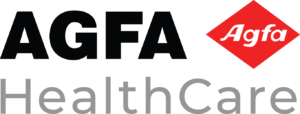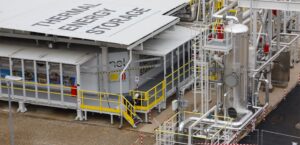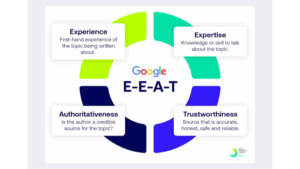Vero Beach, Florida / Syndication Cloud / July 8, 2025 / Christ Church Academy
As education continues to evolve to meet the fast-moving demands of today’s world, many teachers and families are exploring how to develop students who are not only technically skilled but also ethically grounded.
Christ Church Academy is one school that believes that STEAM (Science, Technology, Engineering, Arts, and Mathematics) and Christian education offer one such path—combining innovation with moral clarity and preparing students for real-world challenges from multiple perspectives.
Understanding the STEAM Model
STEAM is a multidisciplinary approach that blends the analytical power of STEM fields with the creativity of the arts. Together, these disciplines help students become curious, engaged learners who can ask insightful questions and develop meaningful solutions.
Science encourages observation and reasoning, technology introduces students to digital tools, engineering fosters innovation through problem-solving, the arts inspire creativity and empathy, and mathematics supports logical thinking and analysis.
This kind of integration equips students with both hard and soft skills—making them adaptable thinkers who are prepared for a variety of future careers. Rather than siloing each subject, STEAM emphasizes their interconnectedness, showing students how the world functions in systems, not silos.
A Values-Based Approach to Education
Christian education brings an added dimension to STEAM learning by providing a moral and ethical framework. It encourages students to reflect on the impact of their decisions—not just whether something can be done, but whether it should be done. In a Christian educational context, questions about justice, stewardship, compassion, and responsibility are part of everyday learning.
This perspective doesn’t inhibit critical thinking—it deepens it. Students are taught to think independently while also grounding their reasoning in core values. They learn to engage with diverse ideas and consider the broader implications of their actions.
The Role of Biblical Interpretation in Analysis
A unique feature of Christian education is its focus on biblical literacy—not just reading scripture but interpreting it thoughtfully. Students are taught to consider historical context, literary form, and intended audience. These interpretive skills build critical thinking that transfers to other areas, such as literature, media analysis, and even scientific inquiry.
Questions like “What assumptions underlie this claim?” or “How might this be understood differently in another context?” are common across both religious and secular subjects. This analytical mindset helps students become more discerning and reflective learners.
How Arts Deepen the Learning Experience
Including the arts in a science and technology curriculum creates a more engaging and holistic educational experience. Artistic expression encourages creativity, empathy, and communication—essential skills in today’s interconnected world. It also helps students visualize and grasp complex scientific and mathematical concepts.
Whether students are drawing a biological structure, composing music that reflects mathematical patterns, or writing creatively about environmental issues, they are learning to approach problems from multiple angles. The arts bring humanity into the equation, reminding students that knowledge isn’t just about facts—it’s also about meaning.
Building Critical Thinking Skills Through Faith and Inquiry
Both STEAM and Christian education emphasize the importance of asking good questions. In classrooms that value inquiry, students are encouraged to challenge assumptions, evaluate evidence, and consider alternatives. In Christian settings, this questioning often includes ethical reflection: “Is this the right thing to do?” or “What does this say about who we are and what we value?”
Rather than fearing difficult questions, educators foster an environment where curiosity is welcomed and diverse perspectives are explored respectfully. Students learn to express their ideas clearly, listen thoughtfully, and engage in dialogue with humility and conviction.
Preparing Students for Real-World Problems
In a world where information is abundant and complexity is the norm, students need more than academic knowledge—they need tools for moral reasoning, collaboration, and creativity. The STEAM-Christian education model encourages students to apply their learning to real-world issues.
For example:
- A project on clean energy might include data analysis, engineering design, and biblical principles of stewardship.
- A unit on artificial intelligence could include technical skills alongside discussions of ethics and social impact.
- Cross-curricular storytelling might combine digital tools with moral lessons, helping students communicate meaningful ideas effectively.
These interdisciplinary projects help students see the relevance of their education and how it connects to broader social and spiritual questions.
The Future Workforce Needs More Than Technical Skills
According to the U.S. Bureau of Labor Statistics, careers in STEM-related fields are projected to grow twice as fast as the average job through to 2033. However, employers are also clear about what else they need: employees who can think creatively, work well with others, and bring a sense of purpose to their roles.
An educational approach that combines STEAM with faith-based reflection supports the development of these “soft skills.” Students who can code and calculate—but who also communicate, collaborate, and lead with integrity—are well-equipped to contribute meaningfully to society.
The Importance of Student-Centered Learning
Effective learning environments place the student at the center of the process. Rather than emphasizing rote memorization, educators act as guides, asking open-ended questions and helping students discover their own answers. In Christian classrooms, these questions often invite students to explore how their faith informs their understanding of complex topics.
A science teacher might ask, “How does this discovery help us better care for the planet?” A literature teacher could explore themes of justice and redemption. These questions help students form connections between academic knowledge and real-life decisions.
Safe Spaces for Dialogue and Growth
Encouraging respectful dialogue is another shared value of STEAM and Christian education. Classrooms that support open discussion allow students to wrestle with difficult questions, test their ideas, and learn from their peers. In these environments, students are not just passive recipients of information—they are active participants in shaping their understanding.
This kind of engagement builds confidence and resilience. Students learn how to disagree respectfully, examine evidence critically, and articulate their beliefs clearly. These are essential skills for citizenship in a diverse and democratic society.
Connecting Learning to Purpose
Ultimately, the goal of education is not just to prepare students for careers, but to help them lead meaningful lives. Integrating STEAM with Christian values ensures that students are not only prepared to solve problems—they’re also motivated to do so in ways that serve others and reflect deeper values.
Whether it’s designing sustainable communities, addressing public health challenges, or creating inclusive technologies, students need both the technical knowledge and the moral vision to make a positive impact.
A Broader Vision for Education
As society becomes more interconnected and challenges grow more complex, the need for thoughtful, adaptable, and ethically grounded individuals becomes more urgent. By combining the strengths of STEAM and Christian education, schools can help develop students who are intellectually capable and morally responsible.
This approach to education doesn’t just prepare students, exams, job markets, but most importantly, it prepares them for life. It teaches them to think deeply, act ethically, and engage with the world in ways that are both original and compassionate.
In an era where the future is uncertain and the pace of change is accelerating, students need an education that equips them to lead with both knowledge and integrity. STEAM and Christian education, when combined thoughtfully, can work to offer just that.
Christ Church Academy
665 20th Street
Vero Beach
Florida
32960
United States
















